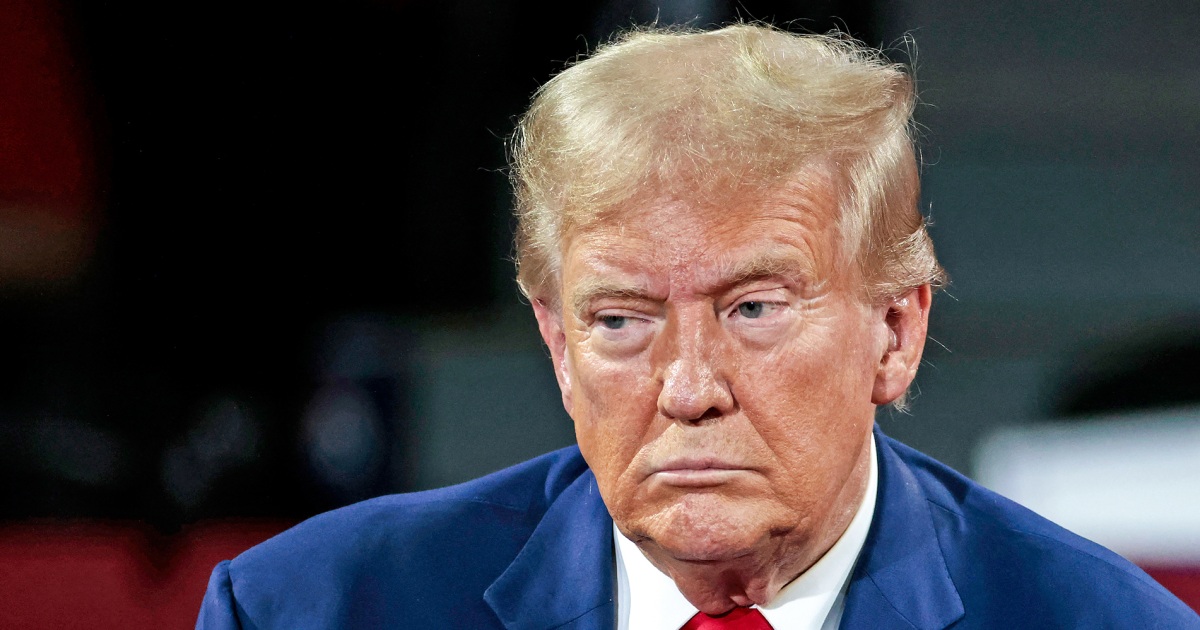A majority of voters blame “extreme political rhetoric” from some politicians and media figures for contributing to the assassination attempt targeting former President Donald Trump in Florida earlier this month, according to the latest NBC News poll, part of a rising trend across a decade-plus of violent attacks on political figures.
Slightly more than half of respondents, 54%, agreed that “extreme political rhetoric used by some in the media and by political leaders was an important contributor” in the days after a gunman was spotted on the fence line outside Trump’s golf course and arrested after fleeing. Another 37% said it was more of an “incident caused by a disturbed person,” and 6% volunteered that it was “some of both.”
Republicans blamed extreme rhetoric 76%-18%, going along with Trump, who quickly blamed Vice President Kamala Harris’ statements against him for inspiring the attempt. Harris said, “I will be clear: I condemn political violence. We all must do our part to ensure that this incident does not lead to more violence.”
By narrow margins, independents and Democrats were slightly more likely to say the assassination attempt was more isolated to a disturbed person. Independents split 50%-44%, while Democrats stood at 49%-39%.
The national NBC News poll surveyed 1,000 registered voters from Sept. 13-17, but it was already in the field when the incident at Trump’s Florida golf course occurred. After the question was added to the survey, 319 respondents answered, for a margin of error of plus or minus 5.6 percentage points.
While voters have often split along party lines following targeted violence against political figures, Americans are approaching consensus that overheated rhetoric is inspiring attacks. And they are growing less likely to chalk up incidents to the lone actions of a disturbed attacker.
NBC News has polled voters four times on this question following a violent attack or attempted attack on a political figure: after then-Rep. Gabrielle Giffords was shot in 2011; after Rep. Steve Scalise was shot in 2017; after Paul Pelosi, the husband of then-House Speaker Nancy Pelosi, was beaten with a hammer in 2022 during an attempted kidnapping of his wife; and this month, after Ryan Routh was apprehended in Florida. He has since been charged with attempted assassination.
The share of voters blaming overheated rhetoric has gone up after each incident. After the Giffords shooting, 71% of respondents called it an isolated incident by a disturbed person, with 24% saying rhetoric was an important contributor and 3% blaming both.
That margin narrowed significantly after Scalise was shot, with 46% calling it isolated incident by a disturbed person, 41% blaming political rhetoric and 5% saying both were a factor.
The lines crossed in the Paul Pelosi attack: 49% blamed political rhetoric, 40% said it was an isolated incident by a disturbed person, and 2% said both were a factor.
And a greater share of respondents than ever said rhetoric was a contributor to the latest attempt on Trump’s life.
Major partisan splits have defined the responses each time based on the victim’s party affiliation.
The previous time the NBC News poll asked this question, Republican respondents called the Paul Pelosi attack an isolated incident by a 64%-25% margin. Independents narrowly said rhetoric was an important contributor, 48%-41%, while Democrats blamed rhetoric 74%-17%.
This month, Republicans overwhelmingly said rhetoric was an important contributor to the assassination attempt against Trump, while Democrats shaded more narrowly in the other direction.

Leave a Reply